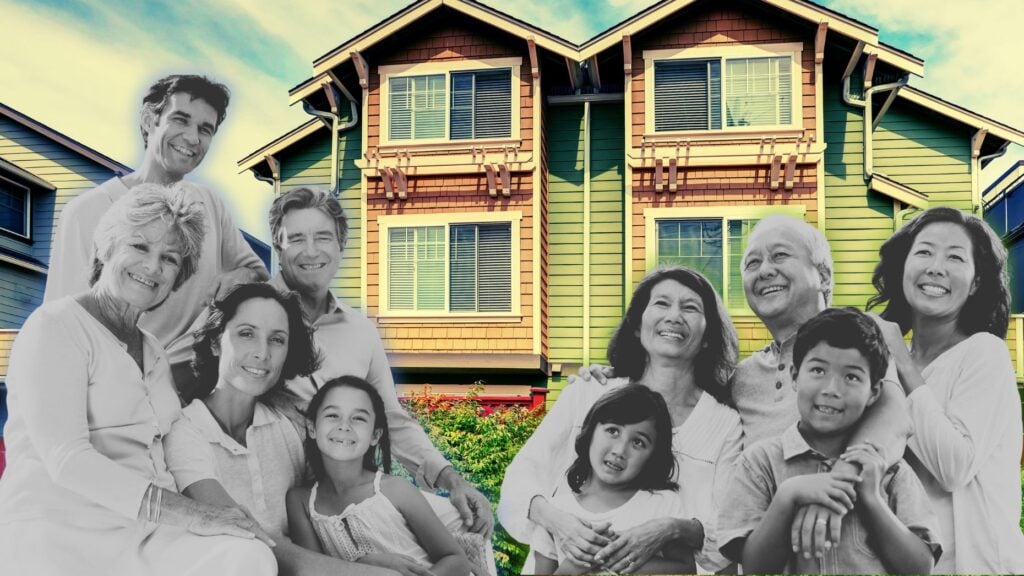
Whether it’s refining your business model, mastering new technologies, or discovering strategies to capitalize on the next market surge, Inman Connect New York will prepare you to take bold steps forward. The Next Chapter is about to begin. Be part of it. Join us and thousands of real estate leaders Jan. 22-24, 2025.
Not too long ago, we conducted most multifamily housing transactions at a table in an office. We signed property agreements, took apartment applications, processed rent checks, and renewed leases there. It was a busy table. And rightly, we don’t use it much any longer.
Property management software has redefined the multifamily housing industry, bundling marketing, showing, leasing, payment, and financial processes into seamless online hubs. The market for these products continues to expand. By 2030, property management software could be an $8 billion industry worldwide, with North America serving as its largest market.
Technology has transformed multifamily housing in ways similar to the taxi industry. Ride-sharing apps give customers agency over their transportation choices, and property management software empowers renters to take control of their living choices. The value is two-way, as operators and customers benefit from the technology.
But both industries still rely on people. Rideshare companies need drivers (for the moment, anyway), and multifamily properties need onsite managers. Renter retention is the most important factor in multifamily success and requires a human touch. That’s why we believe onsite management will remain essential to multifamily housing.
Renewals rely on onsite property managers
Every multifamily operator knows the value of lease renewals. They drive revenue while saving time and money. Unleased apartments cost the industry $50 million annually. As Multifamily Insiders notes, owners must deploy a variety of tools to determine rental discount rates, apartment turnover costs, optimal retention programs, and more. AI-driven software corrals this data into actionable insight. Multifamily operators, however, can’t abandon people entirely for data.
Tech hasn’t yet proven a substitute for the onsite property manager in retention. Renewals matter far more than new leases in a property’s long-term success. On-site managers build relationships with residents, which is essential at renewal time. While multifamily renewal rates generally hover around 60 percent nationally, we have properties with renewal rates as high as 75 percent. Site managers play key roles in this success.
Tech is terrific at helping to generate leads and new leases. It offers 24/7 access to services like rent payments and maintenance requests. But residents tell us often that they appreciate calling the manager about a renewal or stopping by the management office with an issue. Some just want to say hello.
Generally, properties should employ at least one inside (or office) person and one outside (or maintenance) person for every 100 units. While some third-party vendors are entering the on-site management space, we still hire and place qualified property personnel at our locations. Some live onsite, though that’s not required. What is required, however, is a commitment to nurturing an environment where people want to live — in other words, a community.
The value of community in multifamily housing
Renters, particularly those in Generation Z just entering the market, demand a growing list of digital conveniences where they live: high-speed internet, secure apps to pay rent and make maintenance requests, and smart-home technology. Yet they also crave a communal experience, one for which they’re also willing to pay.
RealPage noted that 8 percent of renters were more likely to renew after making friends in their apartment community. It also quoted National Apartment Association research that found “residents will pay up to $200 more to stay in a community where their friends live.” Relationships matter for multifamily residents, and property managers are integral to building them.
Yes, managers primarily provide professional services in maintaining properties and answering tenant questions and concerns. Those who go beyond also help build a sense of belonging in their properties. They personalize the rental experience. By doing so, they deliver value.
Consider the “Friendship Factor” in renewal rates. According to the Apartment Life blog, renters who don’t know their neighbors renew at a rate of 29 percent. Those who know seven or more fellow renters renew at a rate of 47 percent. Property managers can help facilitate these relationships.
How to find a good property manager
The key skills we look for when hiring property managers are interpersonal. Some states require property managers to have real estate licenses. Otherwise, we feel the rest of the job is trainable.
Property managers must be organized, efficient, and self-reliant, of course. Moreover, they must be the landlord’s public-facing representative and conduit to the community. Good managers are our in-market eyes and ears. They inform us when the paint is peeling or asphalt is cracking or landscaping is lacking. They listen to tenants. They are proactive.
Good managers, as noted earlier, also build communities. Some managers we employ have been at their properties for many years. They know the couples who become families, the kids who leave for college, and the retirees who have found their new homes. They organize events and activities for residents. They activate a sense of belonging not just among residents but with themselves as well. Good managers become active members of their communities.
Perhaps I’m biased, but I view property management as a wonderful job. Those who like people, solving problems, and forging relationships rarely have a bad day. When owners visit properties, they see primarily unit numbers. It’s comforting to have an on-site manager who takes ownership of the property, knows the people in those units, and wants to make the rental experience positive for everyone involved.
Proptech has and will make multifamily housing management easier. However, property management can’t be converted entirely into an online business. It’s an onsite business run by managers who love their properties. I can’t ever see an app replacing that.
Michael H. Zaransky is the founder and managing principal of MZ Capital Partners in Northbrook, Illinois. Founded in 2005, the company deals in multifamily properties.

